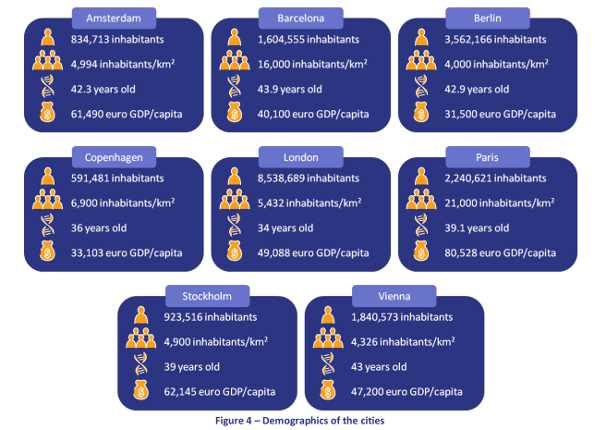The huge amount of data that cities gather can help solve problems related to considerable population growth, which puts pressure on a municipality's economy and infrastructure. In emergency situations, for example, mobile applications can help citizens and first responders to plan their journey using alternative routes if necessary.
Many larger European cities have initiated open data projects themselves, mostly in the form of a dedicated municipal open data portal. Going beyond open data, cities want to become smart. A smart city uses technology to enhance quality, performance and the interactivity of urban services, to reduce costs and resource consumption, and to improve contact between citizens and government.
In their recently published 'Analytical Report #4: Open Data in Cities', the European Data Portal team assesses the best practices from Amsterdam, Barcelona, Berlin, Copenhagen, London, Paris, Stockholm and Vienna. Of these eight cities, Amsterdam, Barcelona, London and Vienna also have a specific smart city website.


